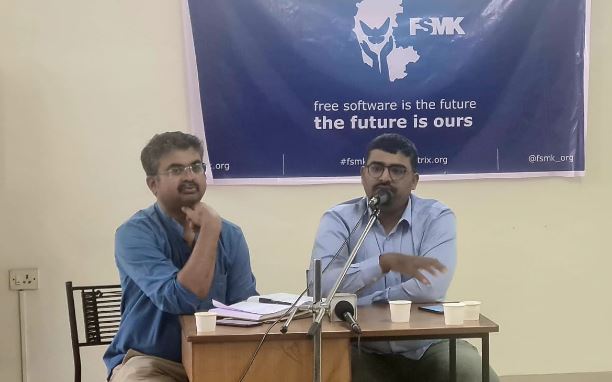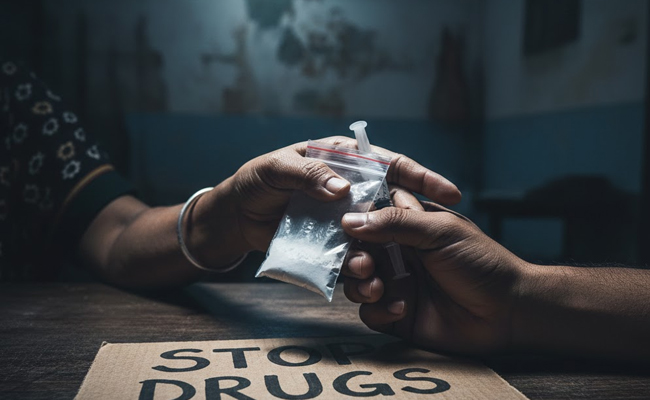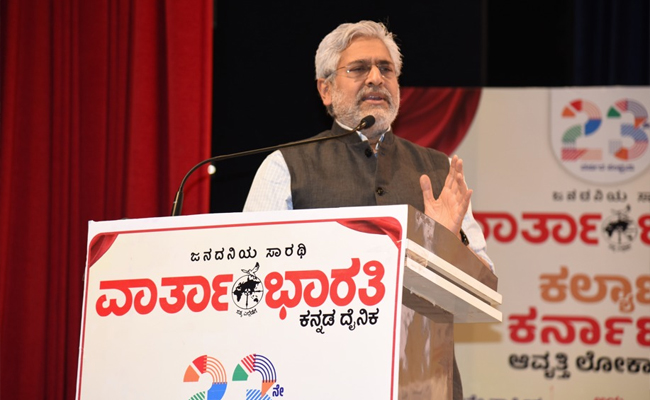Free Software Movement Karnataka (FSMK) organized a discussion on the Digital Personal Data Protection bill 2022. Srinivas Kodali, an expert in the field of digital freedom, presented the nuances of the bill.
The production of software is a vital component of India’s economy and it has been regulated through laws like the Information Technology Act of 2008.
"For over the past decade this vital law has not seen any amendments with increasingly digitised society. The battle for digital rights around Aadhaar has helped civil society gain an important victory in the form of fundamental right to privacy through judgements in “Puttaswamy Vs Union of India” in 2017 and 2018." A press statement from the organisation stated.
"It is this fight that has forced the Government of India to bring a data protection law, which went through several iterations and ended with the current version of the draft Digital Personal Data Protection Bill of 2022.
"The draft Digital Personal Data Protection Bill of 2022 is not a privacy law in whole, but a limited law that looks into regulating the protection of data by information technology companies and other organisations. This Bill is a very watered down version of the draft bill proposed by the Sri Krishna Committee on Data Protection, which suggested a heavily reasoned bill." It added.
"The introduction of “Deemed Consent” with exemptions for a host of activities in the name of public interest doesn’t protect the spirit of privacy of citizens. Exemptions for activities of search engines, network security, credit scoring, processing publicly available personal data makes the bill toothless to protect our privacy.
"The draft Digital Personal Data Protection Bill of 2022 introduces for the first time penalties on citizens in the form of duties. If you do not identify yourself with accurate information while signing-up on any digital platform like Google, Facebook, WhatsApp, etc, the bill proposes penalties for the same. This will end anonymity over the internet and does not help provide privacy, instead by forcing us to identify everywhere, the bill pushes for more surveillance. In the same way, the bill grants several exemptions for the Government to process personal data, making the bill worthless to regulate government surveillance and indiscriminate collection of personal data by
Government agencies." it further added.
"The draft Digital Personal Data Protection Bill of 2022 pushes for the Data Protection Board of India, which is not independent but will work at the interests of the Government of India. Without an independent regulator, there won’t be any independent penalties that are issued on companies for ignoring privacy safeguards. It will also mean no government organisation will be ever penalised for illegal data collection practices or not safeguarding our personal information. In all, the draft Digital Personal Data Protection Bill of 2022 is not the ideal law we deserve to safeguard our fundamental right to privacy.
Free Software Movement India (FSMI) and Free Software movement Karnataka will continue to campaign on the issues related to Digital Rights, Data Protection and Privacy. FSMI will be organizing an International Conference on Digital Eco-Systems – Architectures, Challenges & Technologies(ICDE-ACT) in Hyderabad. FSMK will soon conduct a regional conference & state level hackathon on Re-engineering Digital India, which will aim to advocate for inclusive digital platforms." it added.
Let the Truth be known. If you read VB and like VB, please be a VB Supporter and Help us deliver the Truth to one and all.
Srinagar (PTI): Property worth Rs 1 crore belonging to a notorious drug peddler was on Saturday attached in Jammu and Kashmir's Srinagar, police said.
A double-storey house on eight marlas of land situated at Wantpora Eidgah, belonging to Basit Bilal Dar, a notorious drug peddler, valued at approximately Rs 1 crore, a police spokesperson said.
He said Dar is involved in two cases registered under various sections of the NDPS Act.
During investigation, it was established that the accused had acquired the said property through illicit proceeds generated from drug trafficking activities, the spokesperson said.
Consequently, the property was attached under the provisions of the NDPS Act. The attachment proceedings were conducted in the presence of the two independent witnesses, strictly in accordance with the prescribed legal procedures, he said.
As per the attachment order, the owner has been restrained from selling, leasing, transferring, altering, or creating any third-party interest in the property till further orders, the spokesperson added.





